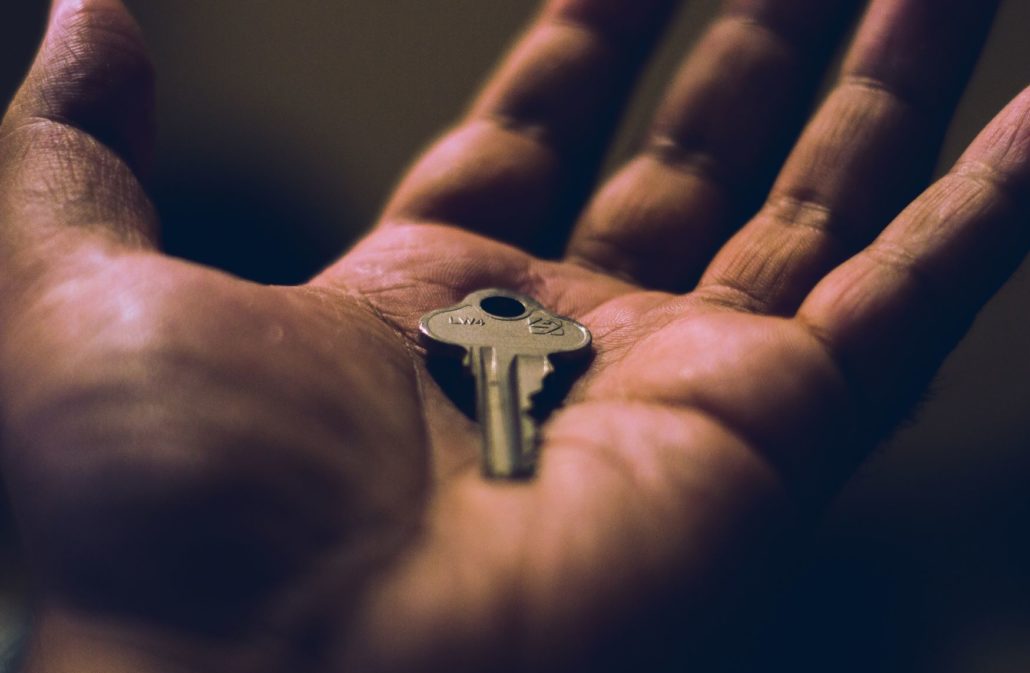You know what you are thinking about during the whole purchase and mortgage process. When do I get the keys to my house?! Of course, buyers want the keys ASAP. Conversely, the sellers want to make sure everything is recorded first. But, for a buyer it is very important to know what needs to happen in order to get a key to the house. Sorry, but there is a lot more than just signing the closing documents.
They may not be seen, but there are a lot of people behind the scenes working diligently to help buyers and sellers finalize the deal home sale. So, we want to clearly explain this process prior to your closing. This is especially important for first time home buyers that have not experienced this process before. Keep in mind, this article assumes the loan type uses the TRID Closing Disclosure format.

Prior to Closing Steps
As mentioned, before closing can happen and especially prior to getting the keys, several important steps need to happen.
- Final underwriting approval (aka “underwriting clear to close”)
- File moves to the closing department
- Closing department and the attorney / settlement office coordinate figures
- Closing Disclosure provided to the buyer at least 3 days prior to closing
- All borrowers must acknowledge receipt of the Closing Disclosure at least 3 business days prior to closing
- Loan officer discussion with borrowers
- Explains the numbers for closing
- Answers any questions
- Prepares the buyers for closing
- Explains how to bring funds to closing
- Buyer wires funds to closing attorney’s account (some attorneys will take certified funds check)
Clear to Close – Still No House Keys!
Receiving an underwriting clear to close is cause for a big exhale and celebration. But, not as big as having your closing paperwork fully signed and the deed recorded. As you can tell above, there are steps to complete just to get to the closing table.
While the closing package is being prepared, this is the time to know your final numbers. If there is a surprise, you want to know it now. Learning at closing is not cool. So, make sure not to just sign the CD and move on to closing. Your loan officer should discuss the numbers in detail. If not, the buyer should make the request. Do keep in mind that there could still be changes in the numbers. Someone could provide an invoice for an inspection late. It does happen.
What Happens on Closing Day?
Closing day is finally here! Maybe you are a little nervous and definitely ready to get the keys to the house. Like mentioned before, there are a whole bunch of things going on other than signing paperwork. Here is a general list of what happens on closing day.
- Lender wires funds to closing attorney/settlement
- Buyer wires their funds to closing attorney/settlement agent (assuming the buyer chooses wire over certified funds check)
- Sellers sign their side of the closing documents (often the sellers sign prior to closing day)
- Watch out for out of town sellers or complicated seller (family or estate sales)
- Buyers, loan officer, and buyer’s agent attend the closing
- Certified funds check? Give it to the attorney
- Provide your driver’s license for identification
- Attorney or title company should thoroughly explain the documentation with buyers
- Buyers sign all required closing documentation
- Some loan officers are there for answering any questions or handle any issues that arise
- Attorney/settlement agent notarizes closing papers
- So this is when the question comes. So do I get the keys now? Technically, not yet!
Recording the Deed and Mortgage
Many believe that once the documents are signed, that’s it. Although, there is more work. But, at least it is nothing for the buyer to do. Except wait of course! Depending on the lender, closing attorney, and specific county/state, this part could vary a little. In general, here is what happens so you can get those keys.
- Closing attorney either visits the register of deeds or goes online (for counties which offer online recording)
- There is an updated title search to ensure there are no new liens, judgments, or other issues since the initial search performed
- Deed is recorded into the buyers names
- The mortgage (deed of trust in NC & some other states) is recorded to show there is now a lien on the deed/property
- Now you are officially a home owner and can get the keys!
- Attorney provides a copy of your paperwork. Keep these for your records!
Now You Have the Keys to Your New Home!
So now it is officially the buyer’s home and the buyer can get the keys! Furthermore, there ARE occasions when the seller will go ahead and give the keys to the buyer at closing or before. Although, don’t count on this. Sellers are taking a risk by allowing buyers to move in prior to recording the deed.
Furthermore, in our opinion, it is better to close a purchase in the morning. This provides the attorney more time to record the deed and mortgage on the same day. Finally, if there is a late afternoon closing, recording may be the next day. Therefore a little longer for the keys.
Key Reminders for Closing
- Do not bring cash to closing
- Remember, anyone on title and/or spouses must attend closing (varies by state, so ask)
- If a Power of Attorney is needed, mention this very early in the purchase process so it is approved early. So don’t mention at closing!
- Consider closing on traditionally less busy days
- Fridays are busier & if doesn’t record, it delays until Monday
- End of the month is the busiest time – avoid the end of the month
Follow our writer, Russell Smith, on ActiveRain and LinkedIn.